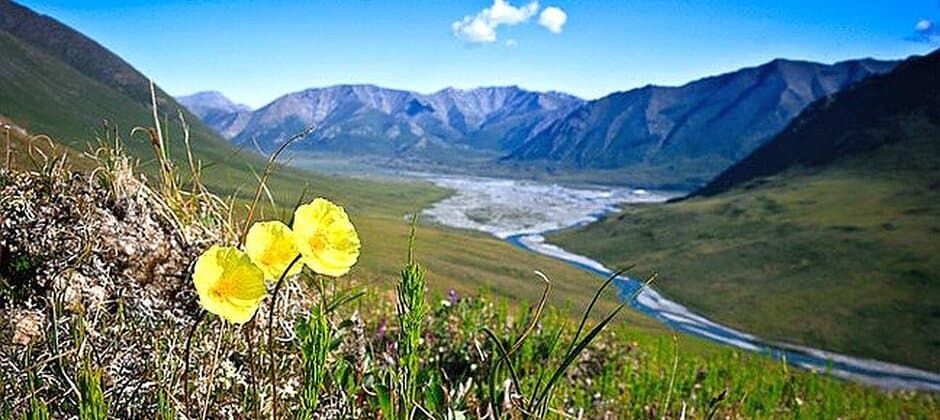Share this article
States sue over plan to drill in Alaska refuge
Fifteen U.S. states joined together challenge the Trump administration’s decision to open the coastal plain of Alaska’s Arctic National Wildlife Refuge to oil and gas development.
Washington, Massachusetts, California, Connecticut, Delaware, Illinois, Maine, Maryland, Michigan, Minnesota, New Jersey, New York, Oregon, Rhode Island and Vermont filed the lawsuit on Sept. 9, alleging that the administration violated the National Environmental Policy Act and the National Wildlife Refuge System Administration Act, among other federal laws.
The states specifically challenged the environmental review process and failed to properly determine that the leasing program is compatible with the purposes of the refuge. They charged that the administration consider a reasonable range of alternatives — including one that would align with the conservation purposes of the Arctic Refuge — and to take a hard look at impacts on greenhouse gas emissions, climate change and migratory birds.
The Bureau of Land Management released the final environmental impact statement for oil and gas leasing on the refuge’s coastal plain a year ago. Under the selected plan, the full 1.6 million-acre coastal plain area was made available for leasing. The coastal plain is an ecologically sensitive area, home to a wide variety of wildlife, including polar bears (Ursus maritimus), numerous bird species and caribou (Rangifer tarandus). This area, along with Ivvavik National Park in Canada, serves as the calving grounds for the Porcupine caribou herd, the largest herd in the refuge and one of the largest in North America.
The Wildlife Society recognizes energy development as an integral part of modern society, while also seeking to minimize its impacts on wildlife. The Society’s position statement on energy development calls for minimizing and mitigating the impacts of energy development thorough natural resource inventories before energy development and cooperation between energy developers and natural resource agencies.
The refuge’s coastal plain was made available for leasing through the 2017 tax bill, via a provision championed by Alaskan members of Congress. That provisions calls for two lease sales within 10 years of at least 400,000 acres each, with the first taking place within four years of the bill’s passage.
Read TWS’ Position Statement on Energy Development and Wildlife.
Header Image: Fifteen U.S. states sued the administration over plans to open the entire coastal plain of the Arctic National Wildlife Refuge to energy development. Credit: Dusty Vaugh/USFWS








